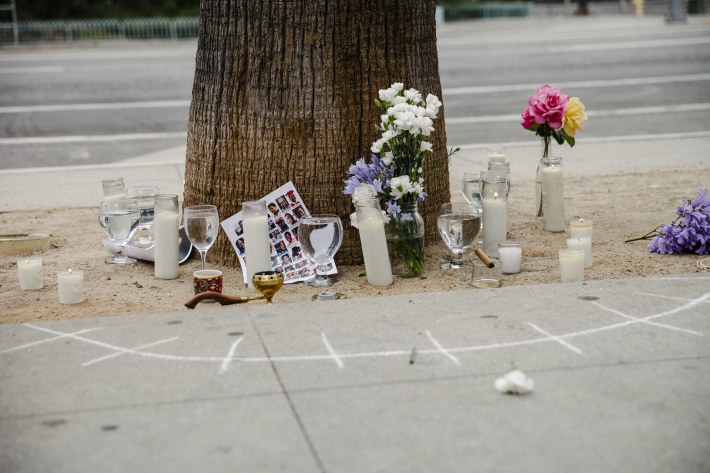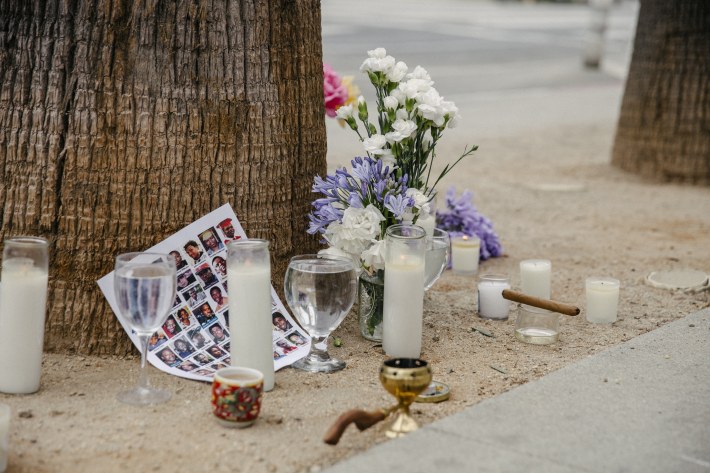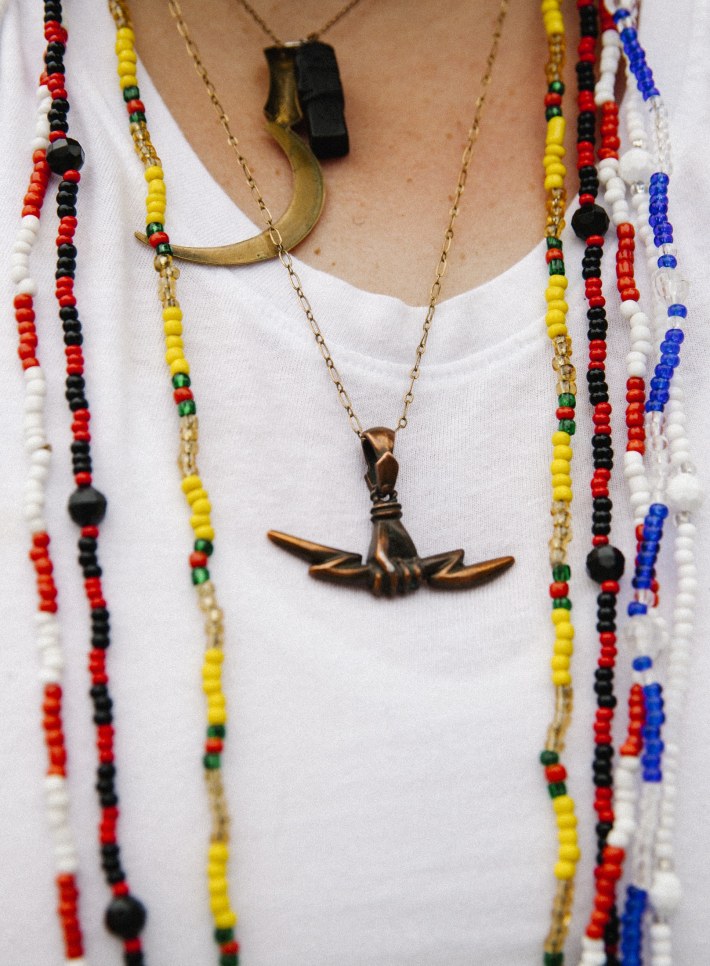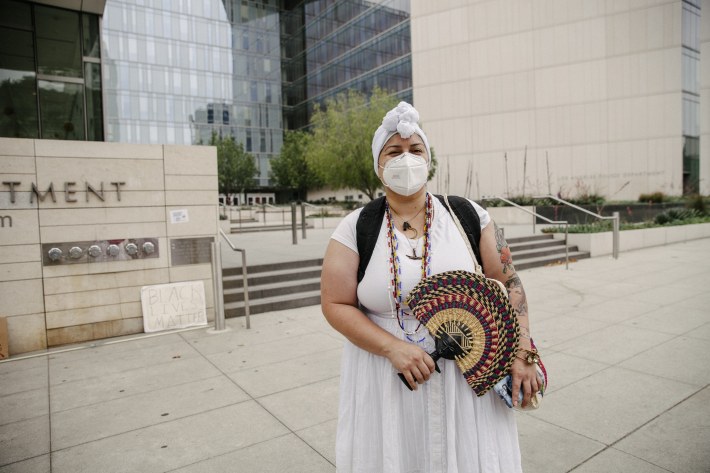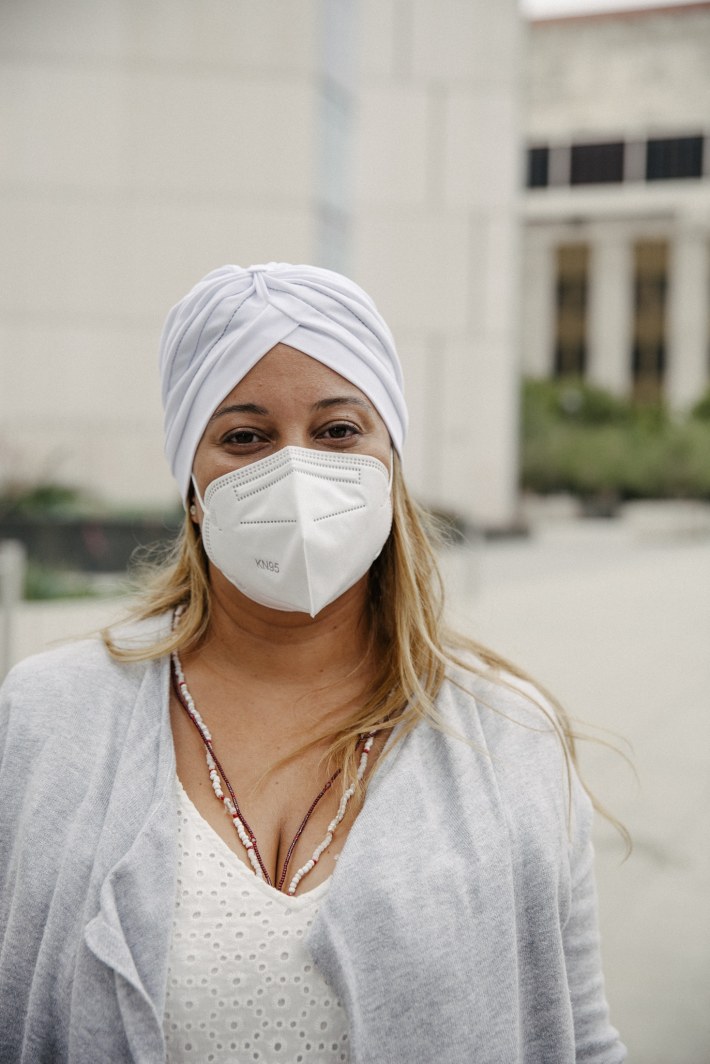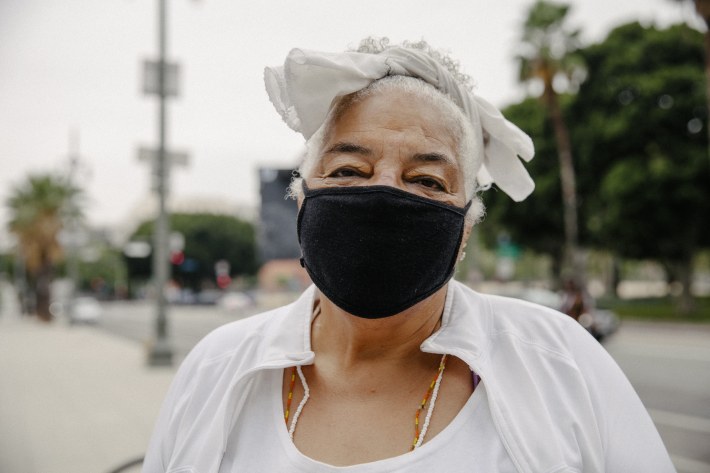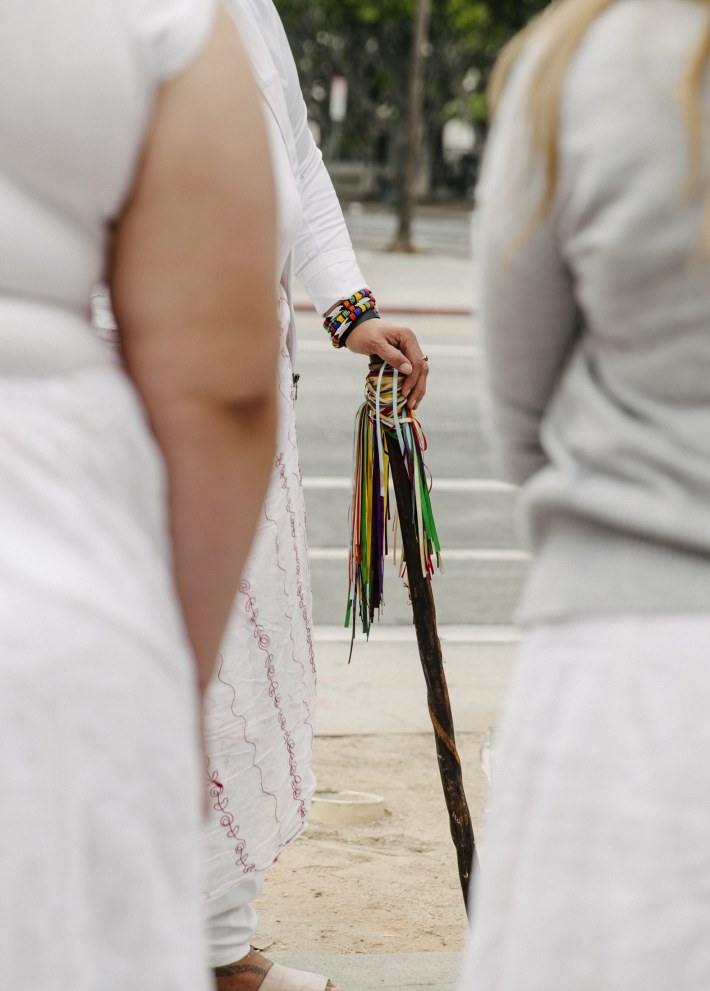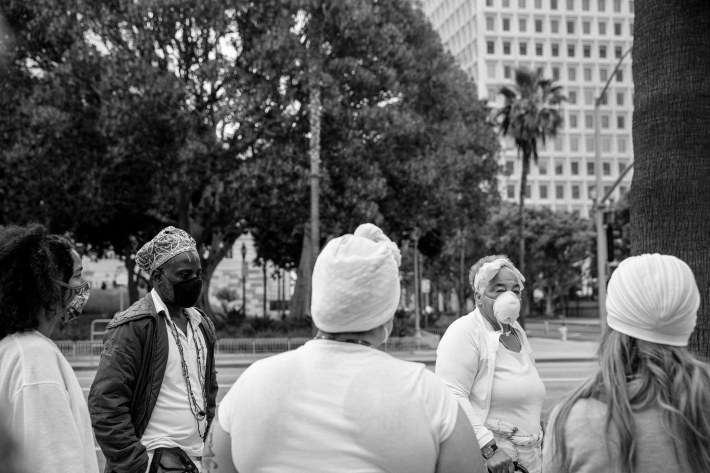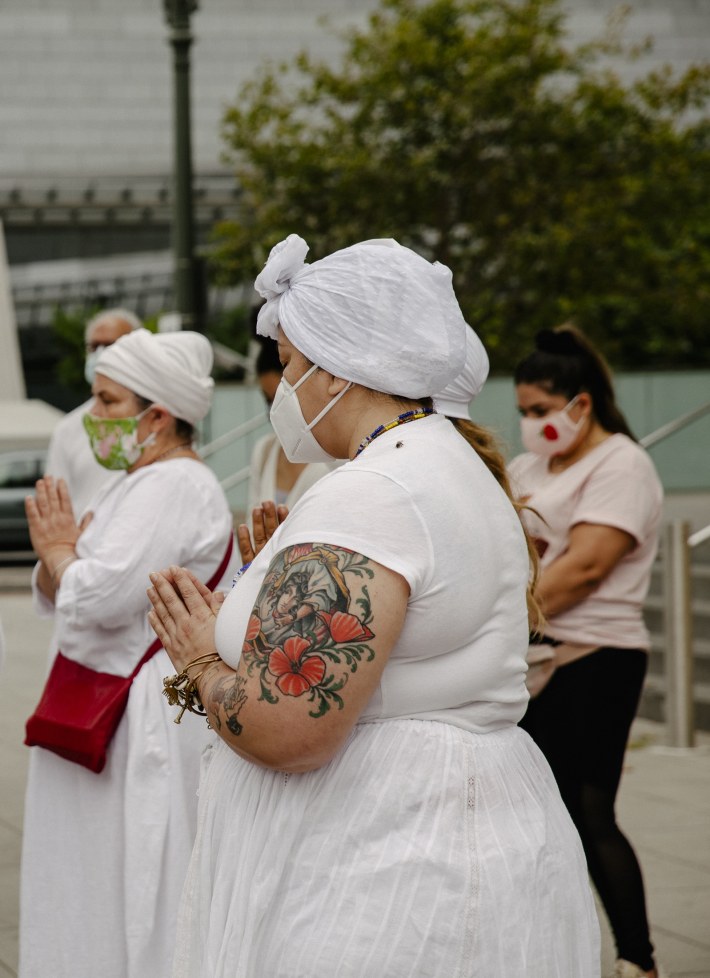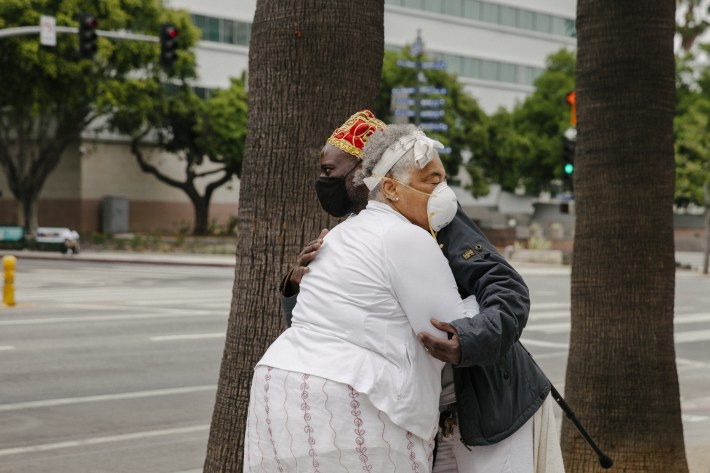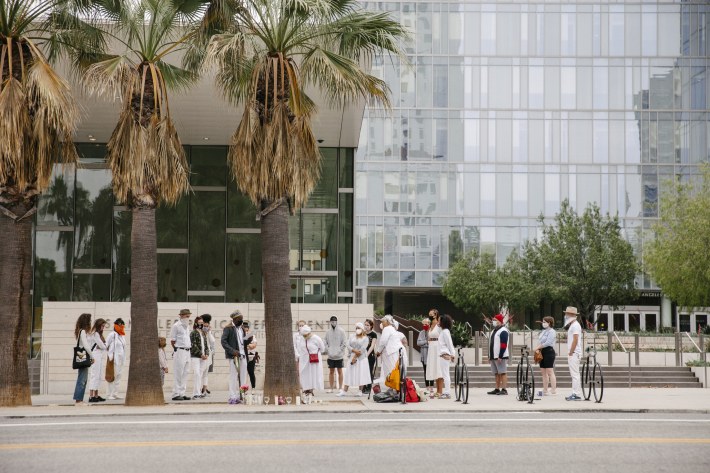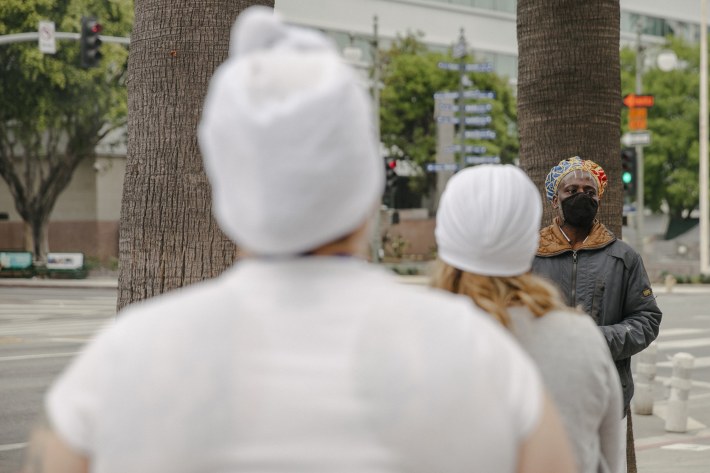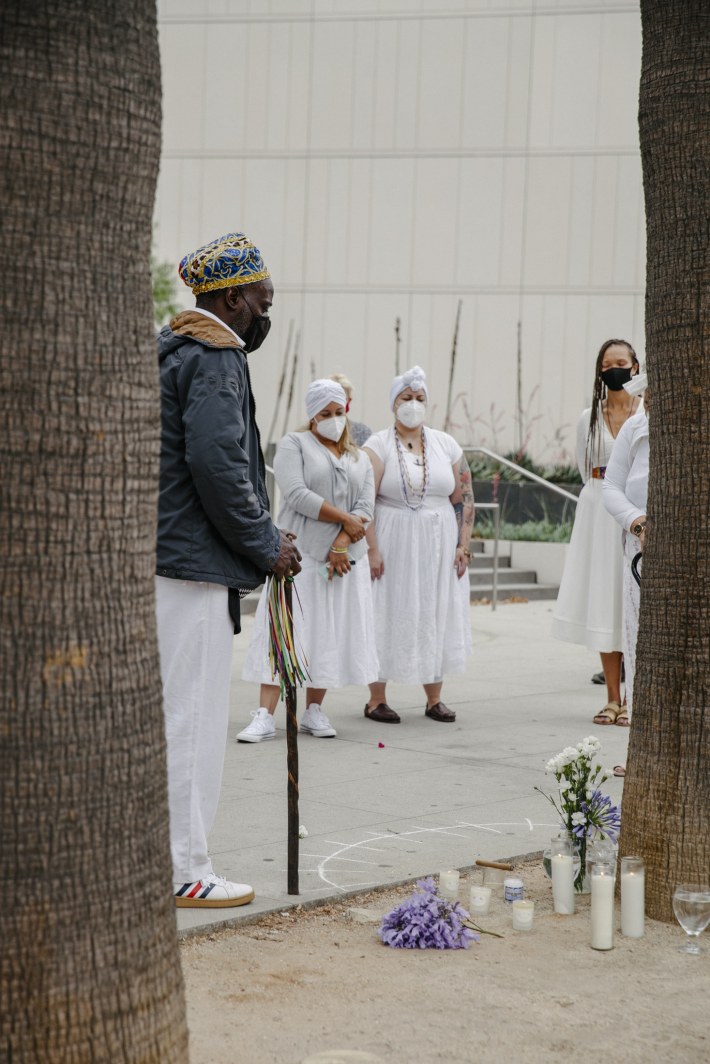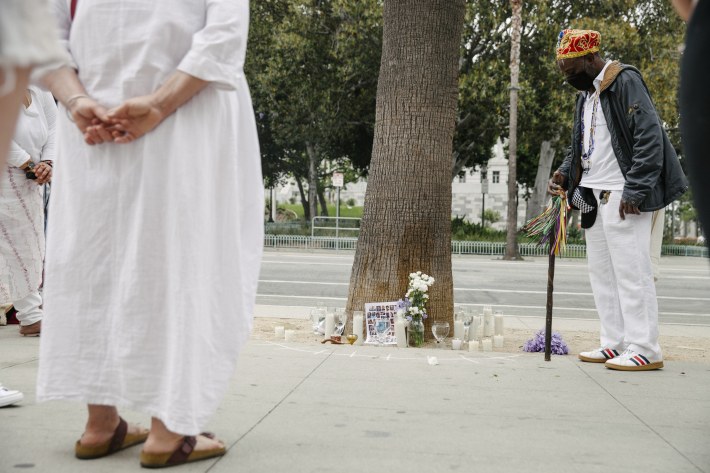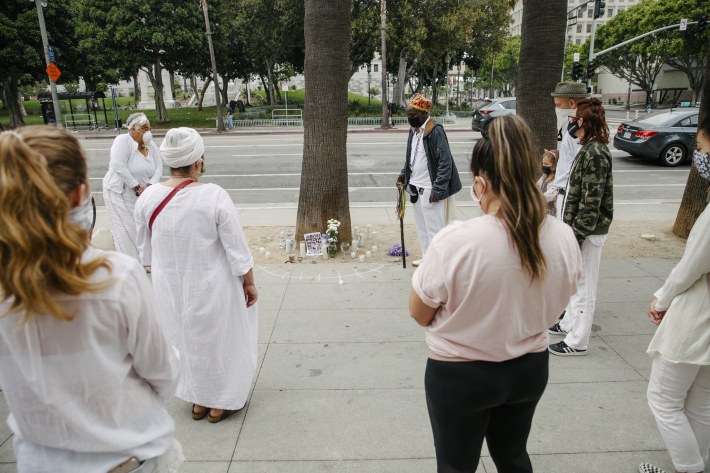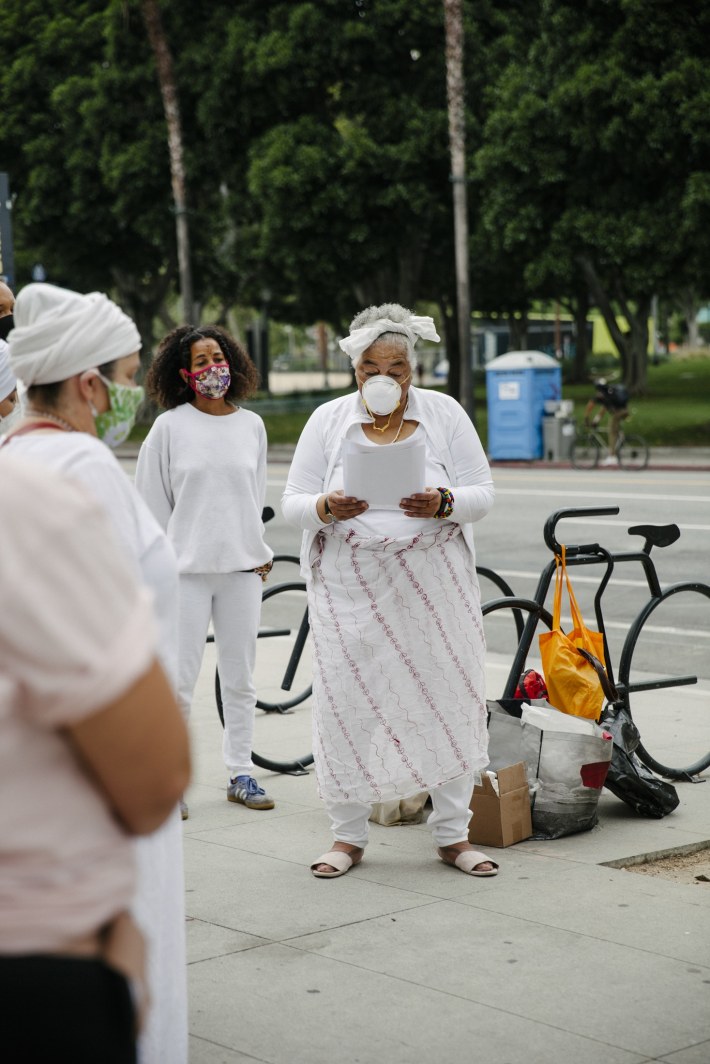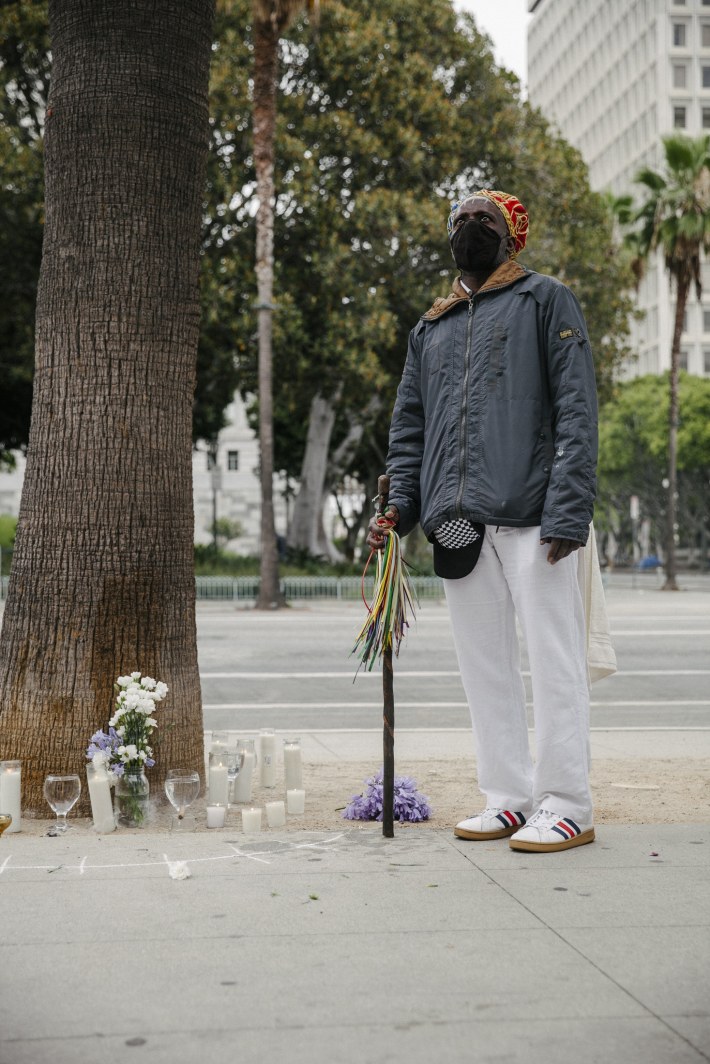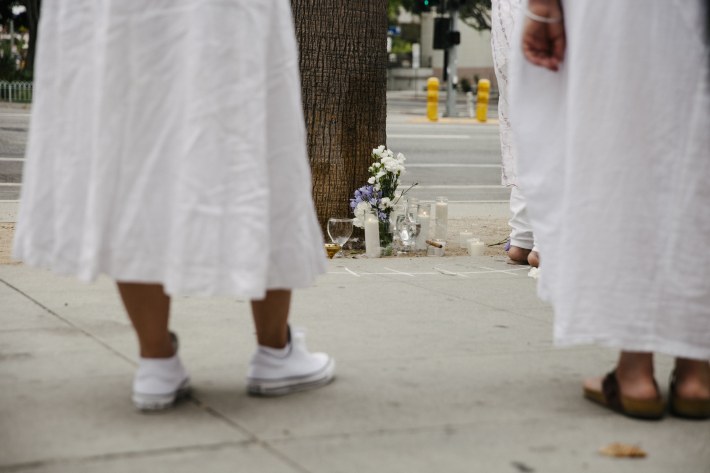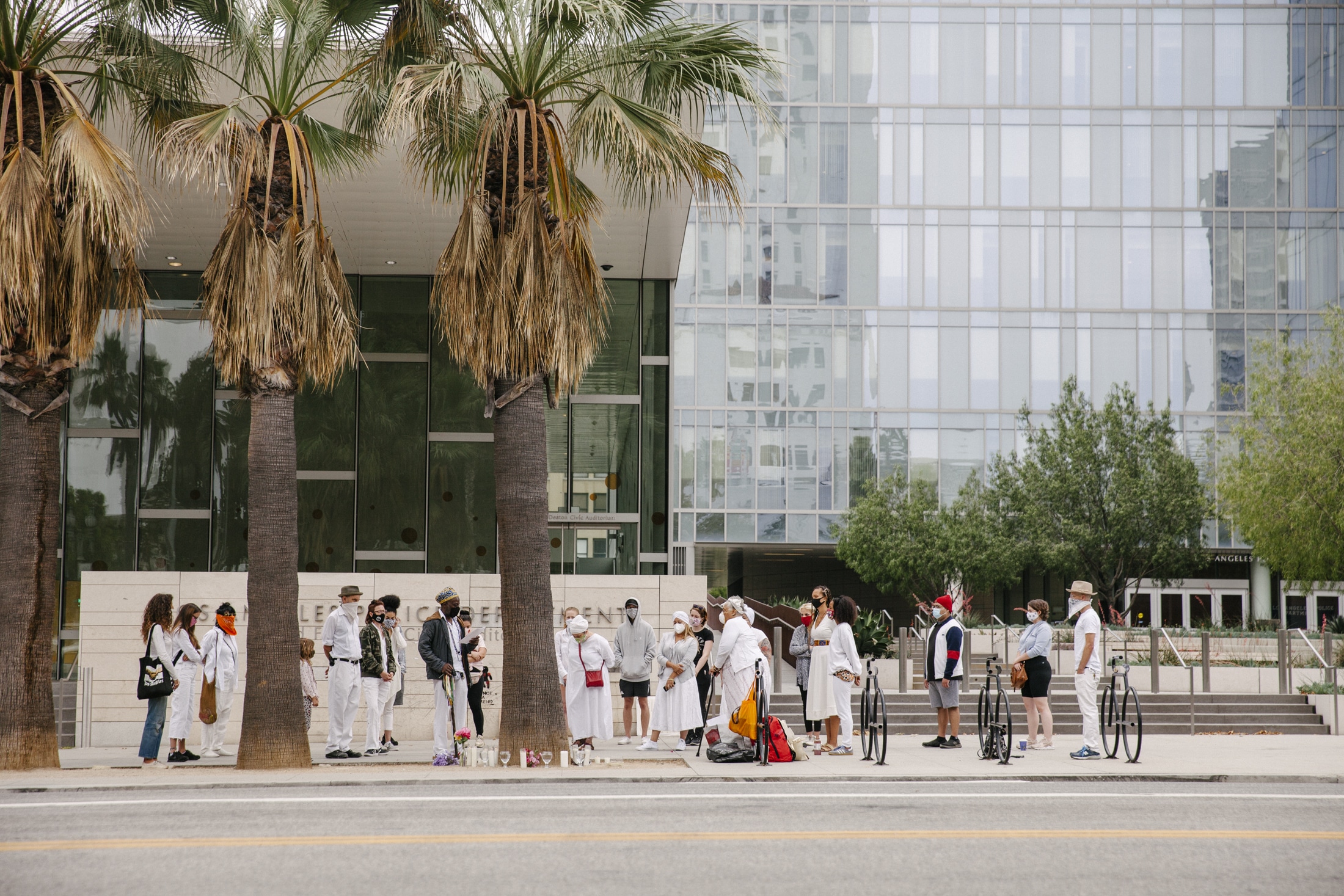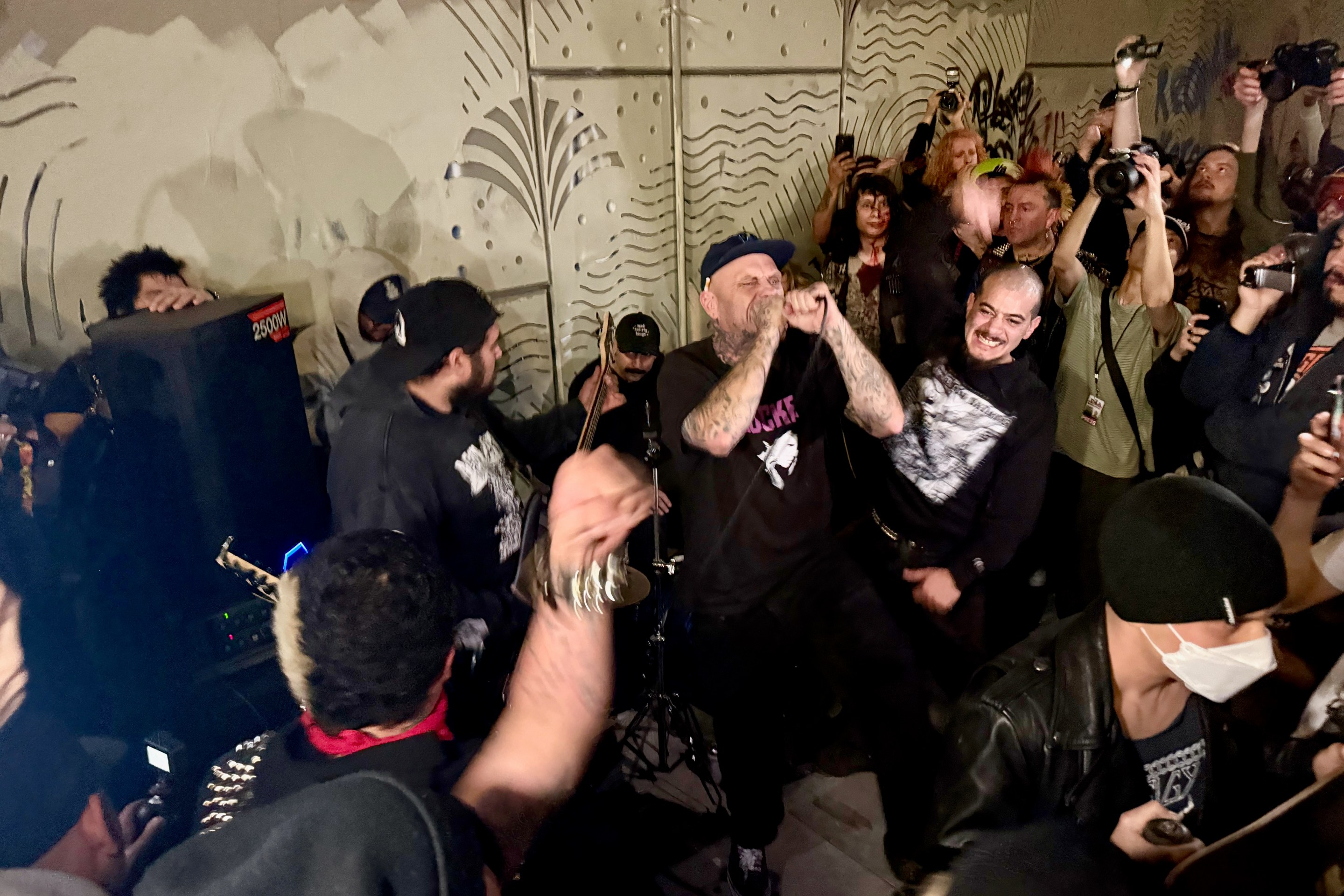[dropcap size=big]L[/dropcap]ast week, early Sunday morning, a group of about two dozen people dressed in white gathered in front of LAPD headquarters in Downtown Los Angeles to perform a Lucumí ritual honoring those killed by police.
Ajamu Smith, an Oba, or master of ceremonies, produced a rhythm using the ground and a thick wooden stick as he led people in Yoruba language song and prayer. Below him, at the base of a tall palm tree, flowers, incense, cups of water, and candles formed an altar. Smoke from the incense swirled around printed photos of men and women killed by police.
Lucumí, also known as Santeria, is an Afro-Cuban religion combining West African Yoruba traditions and Catholic elements. Practitioners worship orishas, or deities, that are believed to be different manifestations of God. Paramount to believers is honoring ancestors. “Many of these people were killed alone and many of them didn’t get the kind of burials or ceremonies in order for their spirits to rest,” said Catherine Scott, an elder, and priestess of Oshun, the deity of rivers, love, and femininity. “There were a lot of protests that were happening, but nothing was spiritually anchoring people.”
After the prayer songs, Scott picked up a stack of paper, on it, the names of countless people killed by police. She called out their names; the small crowd repeated them.The ceremony ended with an incantation of the word “asè,” a Yoruba term and philosophical concept meaning the power to make change happen. “Our ancestors gave us access to the tradition, and it’s our ancestors that help us maintain the tradition,” explained Scott. “Now these men and women have become part of that realm.”
